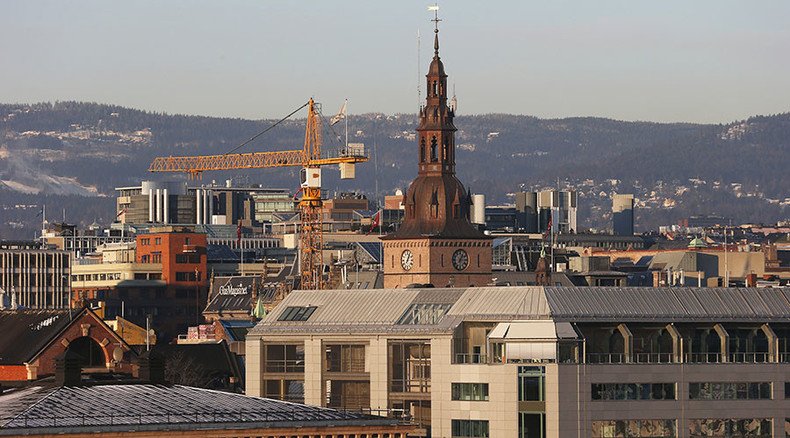Car-free city: Oslo wants to ban private vehicles from city center by 2019

Oslo Council says it wants to ban cars from its city center by 2019 to try and cut greenhouse emissions. However, the move has been met with skepticism from local businesses, who say they fear their profits could suffer.
The initiative has been introduced by the Norwegian capital’s new left-wing administration. After winning municipal elections on September 14, the Labour Party along with its allies, the Socialist Left and the Green Party, presented a program to try and protect the environment and fight climate change.
"We are very happy to see that, some weeks ahead of the [UN Climate] summit in Paris, the new Oslo municipal council is taking a courageous decision and becoming the first capital in the world to choose to pull out of fossil fuels," said Arild Hermstad, head of Norwegian NGO The Future in Our Hands, as quoted by AFP.
Part of their project is to ban private vehicles from Oslo’s city center, but they did not give any details of how they intend to implement this policy.
The Verdans Gang newspaper reports that only 1,000 people live in the center of Norway’s capital, but around 90,000 people work there.
Businesses are worried about the proposed legislation as it would affect 11 of the city’s 57 shopping centers. This would make it difficult for customers to carry large goods without being able to deposit them in their cars.
The plan is to try and cut emissions from greenhouse gases by 50 percent by 2020, in comparison to levels in 1990. The government also wants to build more cycle paths and subsidize the purchase of electric bicycles, as well as reducing car traffic by 20 percent in 2019 and by 30 percent in 2030.
“In 2030, there will still be people driving cars, but they must be zero-emissions,” Lan Marie Nguyen Berg, a member of the Green Party, told AFP












